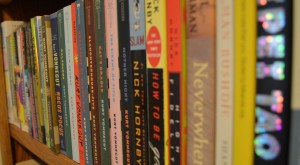Last week, I had mentioned I was struggling a little. I woke up feeling out of sorts and couldn’t point to any reason. I was coming to terms with that uncomfortable feeling and feeling like I was turning it around when I found out Harris died. That sent me into a sort of tailspin. I saw so much of myself in his personality that it terrified me when he didn’t make it. It’s not like he was my exact clone. He was way more clever, and funnier, and I disagreed with plenty of the things he said. But there was still a recognition of myself in him. For people who don’t listen to conversational/comedy podcasts it’s hard to explain the relationship you have to the hosts and guests. You eventually learn almost more about them than you know about your friends. I actually remember Paul F. Tompkins saying he finds out things about friends he’s had for years when he listens to them on a podcast. Mostly because they usually drift into very serious topics that aren’t always appropriate in casual conversation. I don’t want to talk about my depression when hanging out with people, but on a podcast, heavy topics like that pop up from time to time. And they get to explore every aspect of them without judgment. Even on comedy based podcasts like Comedy Bang Bang. They tell stories, they joke, they share ideas, they philosophize. Sometimes it’s as stupid and silly as college freshmen waxing poetic after getting high, but other times it’s illuminating. And when you spend hours and hours listening to someone talk about heavy, important things, you feel like you know them. And when you connect with so many thoughts you feel a kinship. Kindred spirit perhaps. I felt the same way about Stephen Fry. His thoughts about depression were especially meaningful to me. I agreed with how he approached it. Then he tried to kill himself. I had to rethink everything.
Death sucks for a million reasons but one reason that’s not often talked about is when it destroys your philosophies. It’s not only taking a person, it’s taking ideas. I’m sad for all the normal reasons people are sad one someone dies. I’m sad that other person won’t get to experience anything else, ever again. I’m sad for all that we lost. The mind that we lost. The love. The humor. All the potential that comes with life. I’m sad that all that is gone. But I’m also facing myself. I’ve lost ideas that took years to build.
When I watch someone I closely identify with lose his/her battle with life, it really makes me nervous. Not only does the world have one less person who could understand me, it has taken part of my mind.
I’m still very sad.
